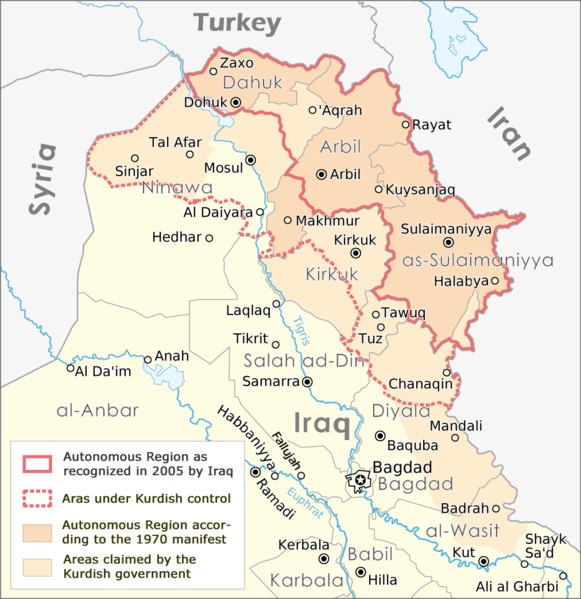In warzones like Syria, Iraq and Yemen, which seem so far from home for many of us, millions of innocent men, women and children have been killed, disabled or displaced. As we race into the new decade many legal and political challenges remain from the last that are playing out in recent news.
In Syria, the fates of thousands that ISIS had captured is yet to be discovered, and a new call has gone out to investigate. Thousands of ISIS fighters and their families, which are still imprisoned in Syria by the Kurds, are from over 50 nations and many of those countries have been either unclear about their intentions to repatriate citizens who had left to join ISIS, or entirely against it. With Kurds facing assault by Turkey and Ankara, their ability to hold their prisoners has been tested. Kurdish autonomy threatens to alter lines on the map in Iraq, Syria and Turkey. Meanwhile, a Kurdish group labelled a terrorist organization by the EU have sought to rid themselves of that label. All of these issues require clear international legal and political solutions, some of which may have presented themselves in the details of recent developments.
In Paris, Stuttgart and across the EU, anti-Turkish protests entered their fifth day Tuesday, as thousands demonstrated their free speech in calling for the release of Abdullah Oecalan. Oecalan is a Turkish-born Kurd who was arrested in Kenya in 1999 for connections to a terrorist organization. He was subsequently handed over to Turkish authorities and has been imprisoned in Turkey for years since. Due to perceptions of his imprisonment, the Kurds have gained much awareness and support from concerned citizens across the globe. As a single story, however, it only begins to explain the intricacy of the bigger Kurdish picture.
Oecalan was a core founder of the Kurdistan Workers’ Party or PKK, which in 1984 began its revolution for a Kurdish statehood. Over the 15 years up to 1999 the PKK was alleged to have perpetrated countless massacres of civilians as well as attacks on the Turkish government. Following his arrest, Oecalan was sentenced to death, but won his appeal and declared a ceasefire. In the years that followed the ceasefire has been broken and redeclared several times, resulting in the current stalemate between Turkey and the PKK.
The Turkish government under Prime Minister Erdogan has thus far been relentless in dealing with the Kurds and, although many nations, including the USA and EU member-states, have listed the PKK as a terrorist organization, it appears that Turkey has violated international law in the way its government has handled the situation. Human Rights Watch recently released its 30th annual report on human rights practices in nearly 100 countries, called World Report 2020. The 652-page report notes that Turkey has, “undermined human rights and democracy,” by cancelling elections the ruling party rightly lost. Since the late 2019 elections, Turkish authorities have ramped up their arrest of members and politicians of the pro-Kurdish People’s Democratic Party or HDP. EU authorities lately have made decisions to pressure Turkey to let up on the Kurds.
On January 28th The Court of Cassation of Belgium ruled that the PKK is not a terrorist organization, upholding a previous judgement from a lower court. The ruling was rejected by Turkish and Belgian politicians. On February 8th following the decision, the Brussels Times reported that the Turkish Justice Minister complained to his Belgian counterpart in an “angry letter.” Although the court’s ruling isn’t a final solution it is great progress for the Kurds, and PKK lawyers are expected to use the ruling as leverage in their appeal to the European Court of Justice in Luxembourg, to overturn the group’s terrorism designation.
On February 5th and 6th at the European Parliament in Brussels the Annual International Conference on the EU, Turkey, the Middle East and the Kurds was held. Afterwards, a press statement was released expressing a final resolution which, among other things, called for peace in Kurdistan. It asked the EU and the UN to treat Turkey’s invasion of Syria as a violation of international law, to formally recognize the North-East Syria’s Autonomous Administration, urged Turkey to release all members of the HDP, pushed to reinstate the Kurdish Mayors who were removed from office and to remove the PKK from the list of terrorist organizations.
The World Report 2020 also revealed that the fate of many thousands of people who were held captive by ISIS, are as yet unknown. Now that ISIS is declared defeated, a proper account of the dead and taking time for grieving is one first step for those affected. Punishment of war’s criminals is a common next step.
While some war criminals may never come to justice, Kurdish forces have imprisoned thousands of ISIS fighters and their families in overcrowded facilities for months now, even while being attacked by Turkey and Ankara. Nations around the world hesitate on deciding to repatriate and prosecute those prisoners in their native countries, leaving the Kurds to hatch their own plans. On February 8th VOA reported that Kurdish officials declared they will begin to put ISIS on trial within a month in Syria, the region where their crimes were committed.
After years of failed negotiations, the Syrian government and opposition forces have come to agree on new talks. On February 10 Ahval News reported a delegation of Syrian Kurds met with Al-Assad’s officials, with Russia acting as a mediator. The parties agreed to restart political negotiations involving the constitution of Syria and the allocation of oil resources.
While these large developments fall short of solving the Middle Eastern crisis, a resumption of talks in Syria is at least a hopeful signal that a resolution may begin to form, to broker peace for the Kurds. At most it may have a lasting positive impact on the Middle East and the entire world community.


